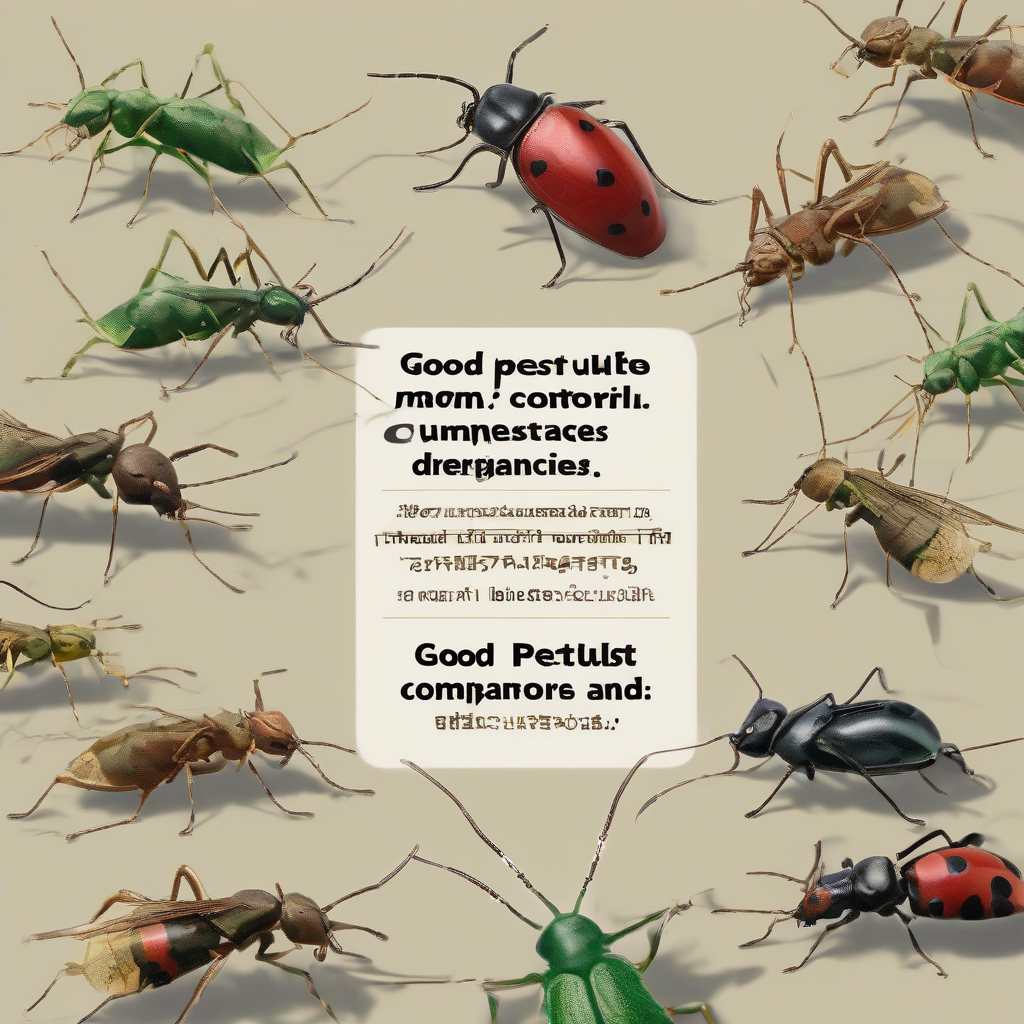Finding the Right Pest Control Partner: A Comprehensive Guide to Choosing a Top-Notch Company
Choosing the right pest control company can be a daunting task. With so many options available, it’s crucial to understand what makes a company truly “good” and how to identify the best fit for your specific needs. This comprehensive guide provides insights into key factors to consider, ensuring you make an informed decision and protect your property from unwanted pests effectively and safely.
Identifying Key Characteristics of a Good Pest Control Company
- Licensing and Insurance: A reputable company will always possess the necessary licenses and insurance to operate legally and protect you from potential liabilities. Verify their credentials with your local regulatory authorities.
- Experience and Expertise: Years of experience translate into a deeper understanding of pest behavior, effective treatment strategies, and efficient problem resolution. Look for companies with a proven track record and specialized knowledge in various pest types.
- Comprehensive Services: A good company offers a wide range of services catering to different pest problems and property types. This includes preventative measures, inspections, treatments, and follow-up visits as needed.
- Transparent Pricing and Contracts: Avoid hidden fees and unexpected costs. A reputable company will provide clear, upfront pricing details, outlining all services and associated expenses. Review the contract carefully before signing.
- Eco-Friendly Practices: Many companies now prioritize environmentally friendly pest control methods, using less toxic chemicals and integrated pest management (IPM) strategies. Inquire about their approach to sustainability.
- Excellent Customer Service: Responsive and helpful customer service is paramount. A good company should be readily available to answer your questions, address concerns, and schedule appointments promptly.
- Safety Protocols: Pest control involves handling chemicals, and a reputable company adheres to strict safety protocols to minimize risks to your family, pets, and the environment. Inquire about their safety measures and chemical usage practices.
- Guarantee and Follow-up: A solid guarantee demonstrates confidence in their services. Ask about their warranty policy and the provision of follow-up inspections or treatments if necessary.
- Positive Reviews and Testimonials: Online reviews and testimonials offer valuable insights into customer experiences. Check reputable review platforms like Yelp, Google Reviews, and the Better Business Bureau to gauge the company’s reputation.
- Professional Appearance and Communication: A professional demeanor from technicians and clear, concise communication throughout the process reflects a company’s commitment to quality.
Questions to Ask Potential Pest Control Companies
Before committing to a company, ask these crucial questions:
- What types of pests do you specialize in?
- What methods do you use for treatment? (Inquire about specific chemicals, IPM strategies, and environmentally friendly options.)
- What is your process for inspection and treatment?
- What is your pricing structure? (Get detailed breakdowns of fees and potential extra charges.)
- What is your warranty or guarantee?
- What are your safety protocols?
- What is your response time for emergencies?
- Can you provide references or testimonials?
- Are you licensed and insured? (Request to see proof of licensing and insurance.)
- What is your company’s approach to Integrated Pest Management (IPM)?
Types of Pest Control Services
- Residential Pest Control: Targeting common household pests like ants, rodents, cockroaches, spiders, and termites.
- Commercial Pest Control: Protecting businesses from pests that can impact operations, hygiene, and reputation.
- Industrial Pest Control: Addressing pest issues in large-scale facilities like warehouses and manufacturing plants.
- Termite Control: Specialized services focusing on termite detection, prevention, and treatment.
- Rodent Control: Focusing on the prevention and removal of rodents such as mice and rats.
- Bed Bug Control: Specialized treatment for bed bug infestations, often requiring multiple visits.
- Wildlife Removal: Dealing with nuisance wildlife like birds, squirrels, raccoons, and other animals.
Avoiding Scams and Unreputable Companies
Be wary of companies that:
- Offer unusually low prices: Extremely cheap services often indicate a lack of quality or inadequate practices.
- Pressure you into immediate service: Legitimate companies allow you time to make an informed decision.
- Fail to provide clear information about their services and pricing: Avoid companies that are vague or avoid answering your questions.
- Lack proper licensing and insurance: Always verify their credentials.
- Use high-pressure sales tactics: A reputable company will focus on providing information and answering your questions.
- Have overwhelmingly negative online reviews: Pay attention to recurring negative feedback.
Choosing the Best Pest Control Company for Your Needs
Ultimately, the “best” pest control company depends on your specific requirements. Consider the following factors:
- Type of pest infestation: Different pests require specialized expertise and treatment methods.
- Size and type of property: Residential, commercial, or industrial properties have different needs.
- Budget: Compare pricing from multiple companies while considering the value of their services.
- Environmental concerns: Choose a company that aligns with your values regarding eco-friendly practices.
- Customer service expectations: Prioritize companies with responsive and helpful customer service.
Post-Treatment Considerations
After pest control treatment, remember to:
- Follow the company’s instructions carefully: This may include keeping children and pets away from treated areas for a certain time.
- Report any recurring issues promptly: Most reputable companies offer follow-up services.
- Take preventative measures to avoid future infestations: This includes sealing cracks and crevices, keeping areas clean, and storing food properly.
